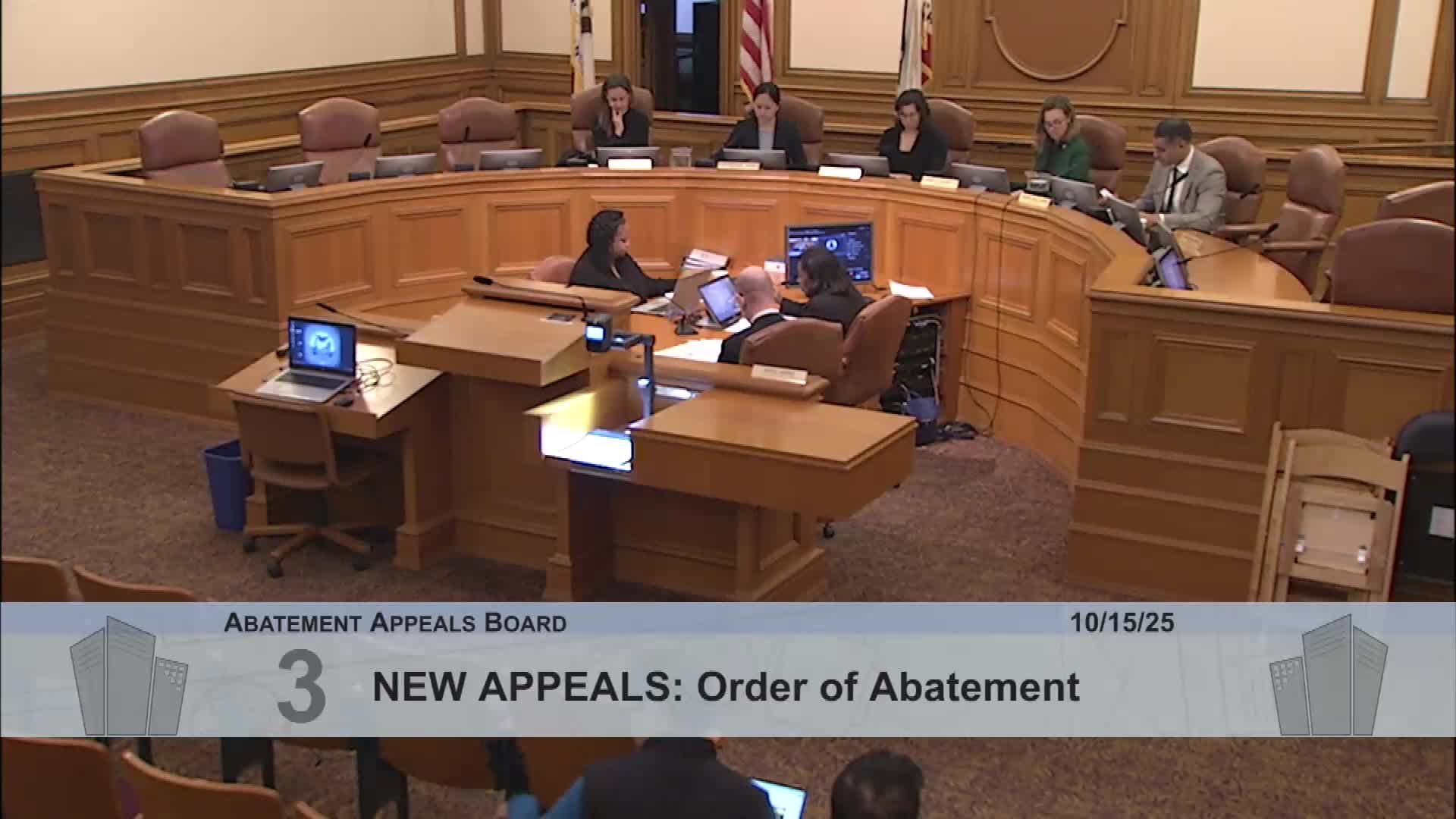Abatement Appeals Board upholds Ulloa Street order, puts enforcement on two-month abeyance
Get AI-powered insights, summaries, and transcripts
Subscribe
Summary
The Abatement Appeals Board voted unanimously Oct. 15 to uphold a March 18, 2025 order of abatement and assessment of costs for 695856 Ulloa Street, but held the order in abeyance for two months to allow the owner time to finalize outstanding permit work.
The Abatement Appeals Board on Oct. 15 upheld an order of abatement and assessment of costs against the owners of 695856 Ulloa Street, but voted unanimously to hold enforcement in abeyance for two months to allow the owners to complete outstanding permit work.
The case stems from expired and incomplete building permits and inspections tied to work at the property, Department of Code Enforcement representative Mauriz Hernandez told the board. Hernandez said the case originated from a web complaint filed Sept. 9, 2022, and that permit research showed multiple expired permits, including a window replacement permit and remodeling permits dating back to 2009–2011. Staff recommended upholding the order and assessing the department's costs.
The owners — listed in the hearing notice as Anila and Ed Brister — told the board they had relied on a contractor who failed to close multiple permits. The owner said most work had been completed and that one permit remained unresolved because the permit documents still listed planned concrete work and a relocated post that in fact had not been done; the owner said an administrative permit was needed to reflect what actually occurred and to remove work items that were never performed. The appellant said the contractor who handled the permits is in poor health and unable to assist.
Hernandez told the board that the department's last inspection was Sept. 30, 2025, which called for a reinspection because special-inspection documentation had not been submitted. Staff said several permits had been reissued and some finaled, but at least one permit still needed final sign-off.
Board members discussed the balance between owner responsibility and contractor error. Several members said the city's building code enforcement is intended to protect health and safety and to reimburse the department for work performed, not to be punitive; they also said equity sometimes points toward leniency when owners have acted promptly after discovering contractor errors. Because the outstanding item appeared to be paperwork and a permitting clarification rather than a public-safety hazard, the board voted to uphold the order of abatement and the assessment of costs but to hold the order in abeyance for two months to allow the owner to obtain the administrative permit and final inspections.
The board’s order requires the owner to obtain the required administrative permit and final inspection(s) within the abeyance period. If the owner fails to secure final sign-offs in that period, the order and assessment will stand and enforcement will resume.
Action at the hearing was unanimous. The department and the appellant were directed to coordinate on next steps and inspections during the two-month abeyance.
